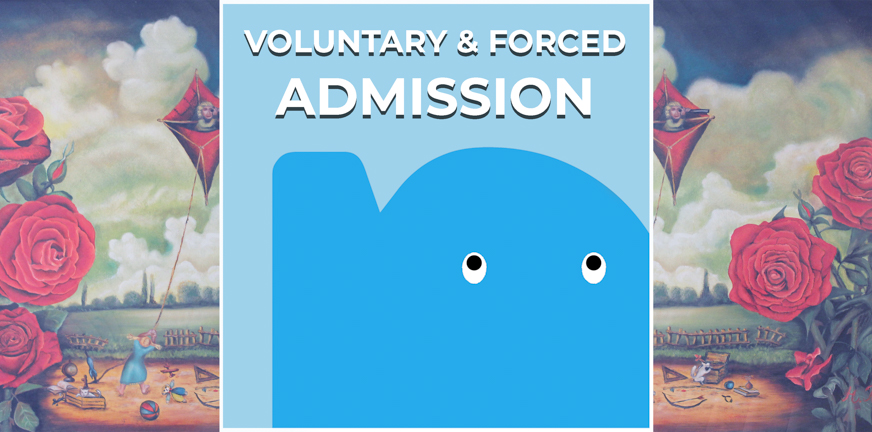
People with multiple psychological problems can become seriously disruptive. Sometimes the situation at home becomes just too much to handle and turns into a crisis situation. In these cases it may be best to have someone admitted to a mental health clinic, either with or without their consent.
When someone personally chooses to be admitted, this is called voluntary admission. When this decision must be made against their will, this is called involuntary or forced admission. The latter only happens in rare and very serious circumstances.
Voluntary admission
When people stay in a mental health care facility or the psychiatric department of a general hospital, it is usually voluntarily. Voluntary admission happens with the individual’s consent, and after talks with other involved persons and care workers or a general practitioner. This type of admission ensures people are looked after when they are in crisis.
The primary goal of voluntary admission is to prevent the crisis from getting worse. So voluntary admission can also take place when friends, relatives and neighbours indicate that the client is not capable of handling a crisis on his/her own. Admission may then be necessary to allow the people at home some rest. Currently, services called “respite homes” also exist, offering a temporary place to stay. These respite homes do not offer treatment, but only a place to take a time-out.
Forced admission
Involuntary or forced admission is a very profound event, for the individual but often also for their friends and family. Involuntary admission therefore only happens as a last resort and is only allowed under certain conditions. Before someone is forcefully admitted, they must meet the following criteria:
- Someone is a danger to themselves or others because of a psychiatric condition. For instance, in case of serious neglect of personal care, a suicide attempt, or when people around them are worried about a high risk of accidents;
- Other types of care, such as outreach counselling, is not possible or not enough;
- Someone is not willing to be admitted voluntarily. An independent psychiatrist then has to determine whether admission is really necessary. In the end, it is up to the court to decide.
Emergency admission
Emergency admission means that someone is admitted because of severe psychiatric problems. For instance, this happens when someone is having serious psychotic problems, or when someone intends to commit suicide or has just tried to do so. Emergency admission can last from a number of hours to a couple of weeks. Emergency admission can be either voluntary or involuntary.
Legal framework
Involuntary admission is no easy matter. It involves many different practical and legal aspects and responsibilities. A number of laws and regulations see to it that voluntary admission always follows strict rules. This study can tell you more about the specific rules and regulations in the different EU member states.




